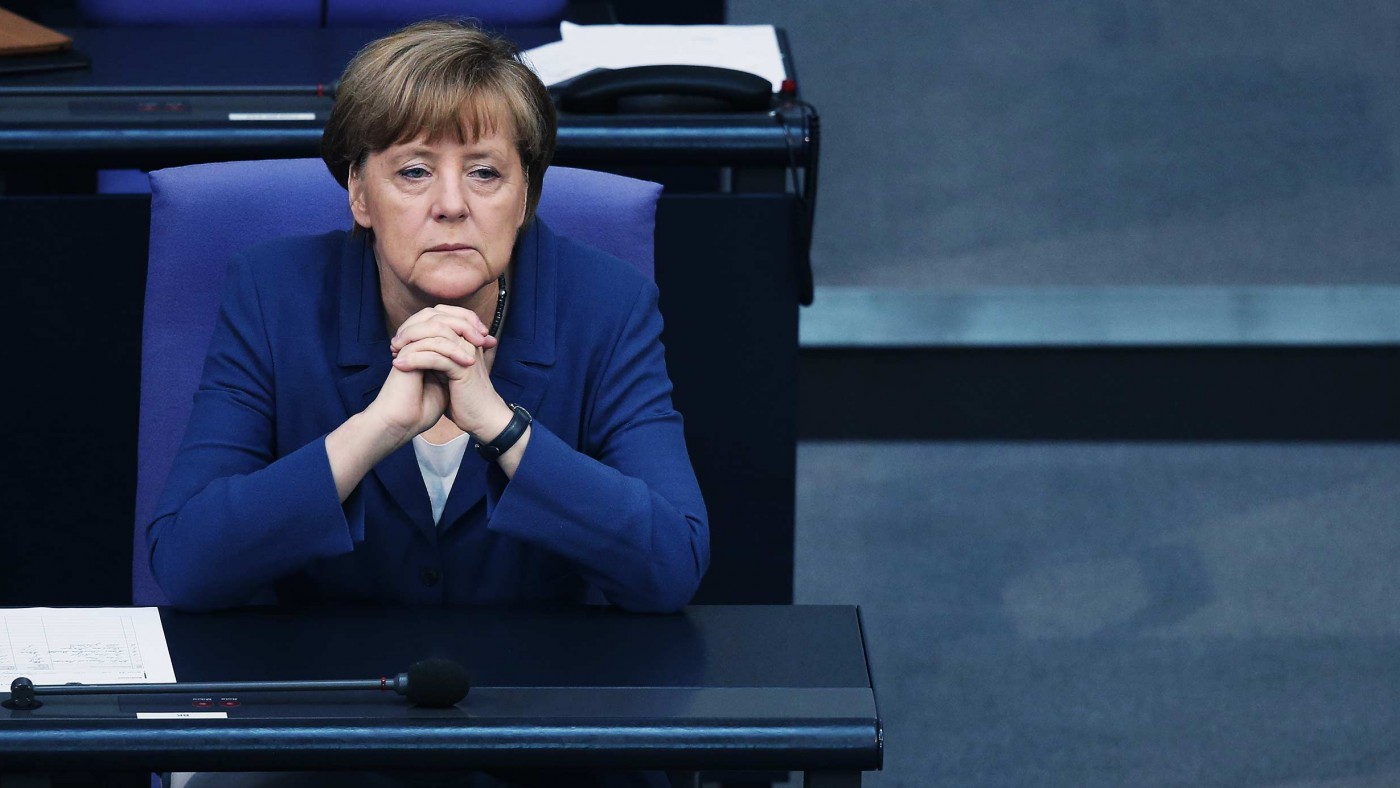This is the weekly newsletter from Iain Martin, editor of CapX. To receive it by email every Friday, along with a short daily email of our top five stories, please subscribe here.
Later this month, it will be ten years since Angela Merkel became German Chancellor. For the British government, much rests on her surviving in office for a few more years yet, because if her ongoing difficulties in relation to the migrant crisis worsen, and she is somehow removed, the UK’s already troubled renegotiation with the EU would become even more problematic.
In the Foreign Office and Number 10 Merkel is regarded as Prime Minister David Cameron’s most important ally, and the only powerbroker capable of persuading the EU’s other leaders to agree a deal that will keep the UK in the European Union. Behold the mighty Merkel. The EU minus Merkel would be diminished, possibly irreversibly, say her supporters. Supposedly she is, as the old saying goes, the cat’s pyjamas.
This week, even the usually sanguine Economist goes overboard in its leader column on Merkel. She has grown taller with every upheaval, apparently. The headline above the article declares her to be “the indispensable European.” Really? No-one is indispensable, least of all democratically elected leaders of political parties.
This adulation of Merkel the stateswoman has long baffled me, and I have written about it before here. While she is undoubtedly a formidable electoral operator, who showed great dexterity in working her way to the top, it is extremely difficult to construct a list of her great achievements or successes in office. Go on, try it. Beyond saying that the shameful Eurozone crisis might have been even worse without her, the record is pretty thin.
Even a critic of Margaret Thatcher would acknowledge that in her eleven years in office she ended up with much more to show for it than Merkel has in the last ten. Thatcher’s economic impact was enormous, domestically and internationally. In the foreign policy field she was a pivotal figure in the ending of the Cold War.
When compared to Thatcher, Merkel looks like the kind of politician about whom people will wonder afterwards what all the fuss was about. She is a likable personality and she is not an egomaniac – underrated qualities in politics – but it is never clear what it is all for, or what she is trying to achieve beyond being there.
It is to this figure – someone often prone to timidity, but not in the migrant crisis where she rashly encouraged migrants to head without limit to Germany – that Cameron and George Osborne have turned for help. Last week, she stressed her commitment to the UK staying in the EU and Osborne, the UK’s finance supremo, was given the stage to tell German business leaders that the UK could leave unless there is a proper deal on the table. Osborne was impressively direct.
A mayday has been sent to Merkel. The message has made it to Berlin and it is understood. The In campaign in Britain had a poor start, the polling looks positive for the Out campaign and the Inners at the top of the British Establishment are seriously spooked.
The complication is that while speeches in Germany are all very well, it looks as though the UK’s great renegotiation deal will amount to not very much at all. There will be some guarantees on ruling Britain out of ever closer Union, and some leeway on so-called benefit tourism, which is not much of a problem anyway. And, er, that’s about it.
The dawning realisation that the British referendum will have to be fought on the more fundamental, existential question of whether the UK wants to stay in an essentially unchanged EU, has produced near panic in the pro-EU camp. That Economist leader even claims that David Cameron is busy turning Britain back into Little England, which is silly. There are plenty of valid criticisms one can make of the Tory leader’s European policy, in requesting a renegotiation that he cannot, so far, explain. The Conservative leadership could also have spent the last few years mapping out an alternative vision of what a two-speed EU might look like. They did not.
But the UK’s membership was last put to the voters forty years ago. In the intervening decades, there has been epic amounts of integration. It is hardly outlandish to let the voters decide once and for all whether membership of the EU is working for Britain not.
The criticism of the very idea of a referendum is of a pattern though, with the In/Remain crowd sounding increasingly desperate. They are even making a basic error that will only aid the Outers, by infuriating reasonable people, in trying to scramble Europe and the EU in voters minds. Many Britons who love or like Europe the continent, and countries such as Germany, France, Italy, the Netherlands and Spain, are quite reasonably sceptical about the struggling political project in which an elite is over-invested. They know the difference between Europe and the EU and the Inners are treating the voters as idiots by pretending that Europe and the EU are the same thing.
Britain cannot leave Europe. It is a geographical impossibility. But it can leave the EU, and it looks increasingly likely to, unless Angela Merkel redeems herself and somehow reshapes the European Union at high speed.


